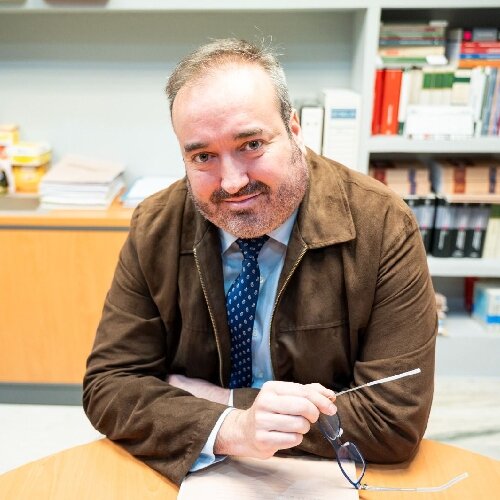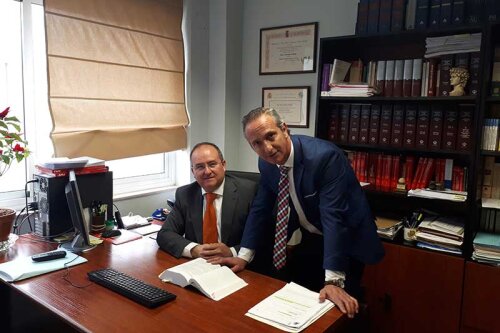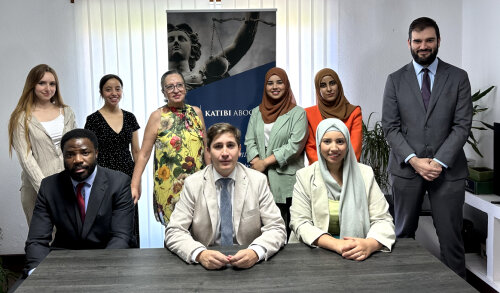Best Annulment Lawyers in Cáceres
Share your needs with us, get contacted by law firms.
Free. Takes 2 min.
Free Guide to Hiring a Family Lawyer
List of the best lawyers in Cáceres, Spain
About Annulment Law in Cáceres, Spain
Annulment is a legal process that declares a marriage null and void as if it never existed. In Cáceres, as in the rest of Spain, annulment is distinct from divorce or legal separation. While divorce dissolves a valid marriage, annulment is granted when a marriage is found to have had legal defects from the beginning. Annulments are overseen by Spanish civil courts and, in certain cases, by ecclesiastical (church) courts for canonical marriages. The grounds for annulment are established by Spanish law and must be proven in court.
Why You May Need a Lawyer
Seeking an annulment in Cáceres involves navigating complex legal and procedural issues. You may require a lawyer if:
- You believe your marriage was entered into under fraudulent pretenses or coercion.
- There are questions about the legal age or mental capacity of one or both parties at the time of marriage.
- The required legal formalities for the marriage were not fulfilled.
- You or your spouse were already married to someone else at the time of your marriage.
- You want to understand the implications for children or assets if your marriage is annulled.
- You need to initiate or contest an annulment proceeding in civil or church courts.
A lawyer can evaluate your situation, explain your rights, and guide you through each step to strengthen your case for annulment.
Local Laws Overview
In Cáceres, annulment law is governed by the national Spanish Civil Code, with some matters handled by the ecclesiastical courts for canonical marriages. Key aspects include:
- Grounds for annulment include lack of consent, duress, mental incapacity, legal impediments (such as bigamy), and non-compliance with procedural formalities.
- Applications for annulment are made to the civil court or, in religious cases, the church tribunal.
- The legal process usually requires presenting evidence and witness testimony.
- Once granted, the annulment retroactively invalidates the marriage, though children born within the marriage retain their legal rights.
- The process can impact issues of property division, parental responsibilities, and inheritance.
- Spouses can often remarry after an annulment.
Residents of Cáceres must file for annulment with the local civil court or relevant religious body and comply with all procedural requirements under Spanish law.
Frequently Asked Questions
What is the difference between annulment and divorce?
Annulment declares a marriage invalid from the start, as if it never happened. Divorce ends a legally valid marriage. Each has different legal effects on property, children, and future marital status.
What are the valid grounds for annulment in Cáceres?
Grounds include lack of consent, minors marrying without proper authorization, fraud or coercion, mental incapacity, being already married (bigamy), and incorrect marriage formalities.
Who can file for annulment?
Either spouse may file for annulment. In some cases, legal representatives, such as parents or guardians, or even the public prosecutor, can initiate proceedings.
Where do I apply for an annulment?
Applications are made at the civil court in Cáceres. If your marriage was a Catholic church ceremony, you may also need to apply with the diocesan tribunal of the Catholic Church.
How long does the annulment process take?
The duration depends on the complexity of the case, but civil annulments usually take several months. Church annulments may take longer due to different procedural requirements.
Does annulment affect the legitimacy of children?
No. Spanish law protects the legal status and rights of children born within a marriage, even if that marriage is later annulled.
What happens to property and assets after an annulment?
Assets are generally divided as if the marriage never took place, but the court may issue orders based on the circumstances and the rights of good faith parties.
Can I remarry after an annulment?
Yes. Annulment restores your status as if you had never been married, allowing you to remarry either civilly or religiously, depending on the context.
Do both parties need to agree to the annulment?
No. One party can file for annulment, but both parties will have the opportunity to present their case in court. Lack of cooperation from one spouse does not prevent the process.
Is legal representation necessary for an annulment?
While not legally required, it's highly advisable due to the complexity of legal arguments, evidentiary requirements, and potential disputes over property or children.
Additional Resources
If you need more help or information about annulment in Cáceres, consider contacting the following:
- Local Bar Association in Cáceres - offers legal guidance and can recommend family law specialists.
- Family Court (Juzgado de Familia) in Cáceres - for filing annulment proceedings and case status inquiries.
- Diocese of Coria-Cáceres - for religious annulment processes through ecclesiastical courts.
- Instituto Nacional de Estadística (INE) - for official documentation and civil status records.
- Local mediation services and social services - for support regarding children, parental responsibility, or welfare issues.
Next Steps
If you are considering applying for an annulment in Cáceres, you can take the following actions:
- Consult with a qualified family law lawyer based in Cáceres to evaluate your case and explain your options.
- Gather all relevant documentation, such as marriage certificates, birth certificates, and any evidence supporting your claim for annulment.
- Determine whether your case will be handled in civil court, church court, or both, depending on the type of marriage.
- Initiate formal proceedings by submitting the appropriate application and supporting documents to the correct court.
- If children or property are involved, seek advice on how the annulment will affect these issues.
- Attend all court hearings and comply with requests for information or evidence.
- Use available resources for emotional and legal support throughout the process.
Acting quickly and seeking reliable legal advice improves your chances of a smooth and successful annulment process in Cáceres, Spain.
Lawzana helps you find the best lawyers and law firms in Cáceres through a curated and pre-screened list of qualified legal professionals. Our platform offers rankings and detailed profiles of attorneys and law firms, allowing you to compare based on practice areas, including Annulment, experience, and client feedback.
Each profile includes a description of the firm's areas of practice, client reviews, team members and partners, year of establishment, spoken languages, office locations, contact information, social media presence, and any published articles or resources. Most firms on our platform speak English and are experienced in both local and international legal matters.
Get a quote from top-rated law firms in Cáceres, Spain — quickly, securely, and without unnecessary hassle.
Disclaimer:
The information provided on this page is for general informational purposes only and does not constitute legal advice. While we strive to ensure the accuracy and relevance of the content, legal information may change over time, and interpretations of the law can vary. You should always consult with a qualified legal professional for advice specific to your situation.
We disclaim all liability for actions taken or not taken based on the content of this page. If you believe any information is incorrect or outdated, please contact us, and we will review and update it where appropriate.
















